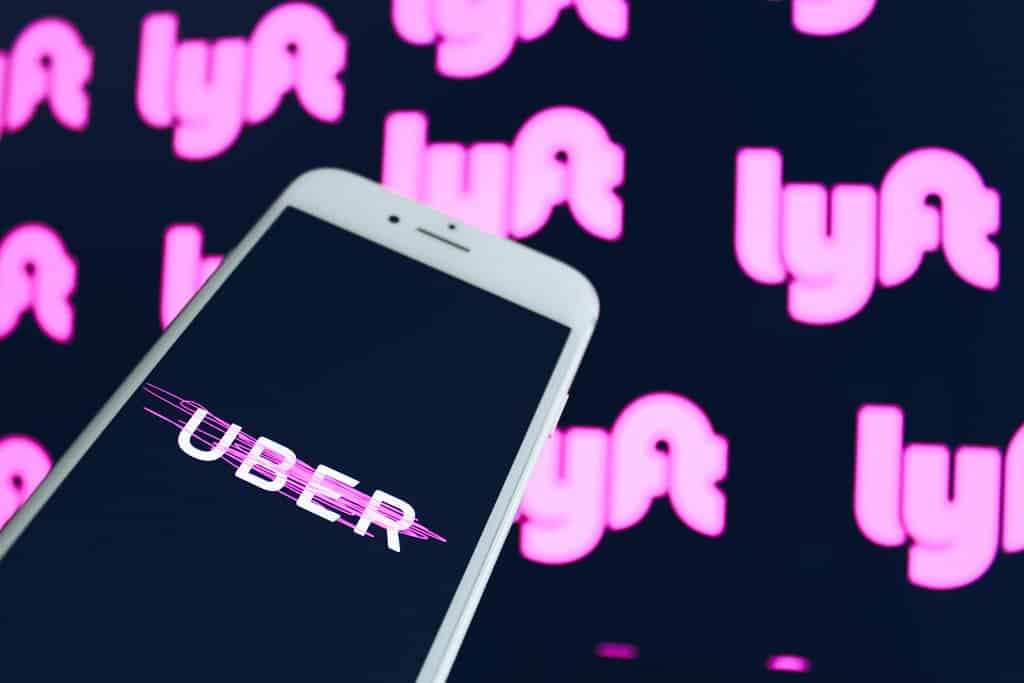
Leigh Thomas is a student at Harvard Law School.
A group of Uber and Lyft drivers filed a lawsuit Monday against Governor Cuomo, the New York Department of Labor, and the New York Commissioner of Labor, alleging New York illegally failed to pay standard unemployment benefits to drivers in a timely manner during the coronavirus pandemic. The suit claims that the NYDOL treats app-based drivers’ applications for UI benefits as though drivers were independent contractors, despite state precedent determining that app-based drivers are employees for the purposes of unemployment. The suit also claims DOL fails to collect wage data from Uber and Lyft, placing the burden instead on drivers to prove their earnings and employment status. This requires drivers to complete more steps and more paperwork, delaying their claims for months while other employees receive benefits in two to three weeks. The plaintiffs are three drivers who have waited months for DOL to process their UI applications, having seen business evaporate during the state’s stay at home order. They are joined by the New York Taxi Workers Alliance, the union for drivers in NYC. The plaintiffs seek to enjoin the Department of Labor from misclassifying app-based drivers as independent contractors, and to immediately pay benefits owed to the plaintiffs and all app-based drivers. They also seek to compel the DOL to require Uber and Lyft to provide driver earnings data. The Cuomo administration said in a statement that Uber and Lyft drivers are treated no different than any other worker.
Under pressure from his unsatisfied political base, President Trump is expected to extend and expand restrictions on foreign workers coming into the United States this week. This step would broaden Trump’s April executive order limiting the entry of certain immigrant workers in the name of protecting the American labor market and conserving health care resources during the COVID-19 pandemic. According to POLITICO, the administration is considering limiting visas for skilled workers in specialty occupations and seasonal workers, as well as workers who come to the US for cultural exchanges. The decision to expand restrictions may face opposition from business leaders, who urge that foreign workers are still needed even in spite of high American unemployment.
Racial disparities continue to define the outcomes of the coronavirus pandemic, both in terms of health outcomes and economic impact. The Washington Post reported yesterday the number of working Black business owners has fallen more than 40 percent, a decrease that far outpaces other racial groups. Experts predict the hardship for business owners will have ripple effects on racial disparities in unemployment, since small minority-owned businesses often create jobs for people from the owner’s ethnic or racial group. The disproportionate impact on Black business owners could have many causes. Businesses owned by people of color tend to have thinner financial cushions due to generations of wealth disparities, and small businesses have struggled to benefit from the federal government’s paycheck protection program.
The Actors’ Equity Association, a union of more than 51,000 professional actors and stage managers, announced health and safety principles for theaters to follow before it will authorize its members to return to work. The core principles address testing, isolating symptomatic individuals, modifications to theaters to minimize transmission, and methods for including the union in all decision-making. The union released the principles to underscore the unique health and safety concerns faced by workers in the performing arts, even as most of the public conversation about guaranteeing safety in theaters has been focused on audience members.
In The New York Times, Charlie Warzel warns that expanding remote work policies after seeing their viability during shelter in place will lead to the total collapse of work-life balance. Warzel worries that a focus on the increased productivity of workers under current conditions ignores high levels of burnout. The benefits of remote work, including reduced commute times, moving to lower cost of living locales, and escaping toxic office behavior, can be outweighed by the loss of separation between home and work. Warzel counsels to make working from home intentional policy with structure in place to preserve worker wellbeing.
The AFL-CIO announced yesterday it would endorse Joe Biden for president. Richard Trumka, president of the AFLI-CIO, said in an interview with The Washington Post that his group will be “playing hard” in battleground states to urge members to support Biden.






Daily News & Commentary
Start your day with our roundup of the latest labor developments. See all
April 26
Starbucks and Workers United resume bargaining talks; Amazon is ordered to disclose records; Alabamians support UAW’s unionization efforts.
April 25
FTC bans noncompete agreements; DOL increases overtime pay eligibility; and Labor Caucus urges JetBlue remain neutral to unionization efforts.
April 24
Workers in Montreal organize the first Amazon warehouse union in Canada and Fordham Graduate Student Workers reach a tentative agreement with the university.
April 23
Supreme Court hears cases about 10(j) injunctions and forced arbitration; workers increasingly strike before earning first union contract
April 22
DOL and EEOC beat the buzzer; Striking journalists get big NLRB news
April 21
Historic unionization at Volkswagen's Chattanooga plant; DOL cracks down on child labor; NY passes tax credit for journalists' salaries.